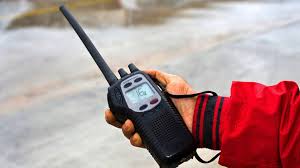
Can Dehydration Cause Joint Pain?
Joint pain is a common complaint among people of all ages. Whether it’s a dull ache or a sharp, stabbing sensation, it can seriously affect your quality of life.
While injuries, arthritis, and age-related degeneration are well-known culprits, one often-overlooked factor is hydration. Yes, dehydration might be quietly contributing to your joint discomfort.
But can dehydration cause joint pain, really? Let’s explore the science behind this potential connection in detail.
Understanding Dehydration: What Is It and Why It Matters
Dehydration occurs when your body loses more fluids than it takes in. Water is essential for nearly every function in the body—from regulating temperature to flushing out toxins. When you don’t drink enough, your body starts to conserve water, and this can affect everything, including your joints.
Common causes of dehydration include excessive sweating, diarrhea, vomiting, fever, and simply not drinking enough water, especially in hot weather or after physical activity. People who are older, take certain medications, or suffer from chronic illnesses are at higher risk of becoming dehydrated.
Symptoms of Dehydration: More Than Just Thirst
Most people associate dehydration with feeling thirsty, but by the time you feel parched, you’re already mildly dehydrated. Here are some tell-tale signs:
- Dry mouth and lips
- Dark yellow urine
- Dizziness or light-headedness
- Fatigue
- Dry skin
- Muscle cramps
- Headaches
If left unaddressed, dehydration can progress and cause serious complications, including joint issues.
Anatomy of Joints and the Role of Water
To understand how dehydration affects your joints, it’s essential to know a bit about joint anatomy. Joints are points where two bones meet and are cushioned by cartilage and synovial fluid.
- Cartilage is a spongy tissue that covers the ends of bones, helping them glide smoothly against each other.
- Synovial fluid is the thick, egg-white-like fluid that fills the space in the joint cavity, lubricating the joints and supplying nutrients to the cartilage.
Both cartilage and synovial fluid depend heavily on water to maintain their structure and function. When you’re dehydrated, the body may reduce synovial fluid production and cause the cartilage to dry out and become less effective.
Can Dehydration Cause Joint Pain? Here’s How
The connection between hydration and joint health is more significant than you might think. Here’s how dehydration can lead to joint pain:
1. Reduced Synovial Fluid
This fluid acts as a lubricant in the joints. When you’re dehydrated, your body produces less synovial fluid, leading to increased friction between bones and potential inflammation.
2. Cartilage Breakdown
Cartilage is about 70-80% water. When your water intake is low, cartilage can dry out, losing its cushioning effect and leading to bone-on-bone contact, which causes discomfort and pain.
3. Inflammation and Stiffness
Dehydration can trigger the release of inflammatory compounds in the body, worsening joint pain and stiffness—especially in people already suffering from arthritis or other joint disorders.
4. Increased Muscle Cramps
While not directly related to joints, dehydration can also cause muscle cramps and tension around joints, which may further limit movement and increase pain perception.
Scientific Evidence Behind the Link
Several studies support the idea that dehydration negatively affects musculoskeletal function. A 2015 study published in the Journal of Sports Sciences found that even mild dehydration reduced muscle performance and increased fatigue. Another study in Clinical Rheumatology highlighted how maintaining proper hydration could help reduce joint stiffness in rheumatoid arthritis patients.
While research is ongoing, health professionals widely agree that water plays a crucial role in joint lubrication and cartilage maintenance.
Other Factors That May Contribute to Joint Pain
Although hydration is important, it’s not the only factor that influences joint health. Here’s a quick comparison:
| Factor | Effect on Joints |
|---|---|
| Poor diet | Increases inflammation; lacks joint-supporting nutrients |
| Sedentary lifestyle | Reduces joint flexibility and strength |
| Aging | Natural cartilage wear and tear |
| Excessive weight | Adds pressure on joints, especially knees and hips |
| Previous injuries | Weakens joint structure and increases pain risk |
Even with optimal hydration, ignoring these other aspects can still lead to discomfort.
Preventing Joint Pain from Dehydration
Maintaining proper hydration is a simple yet powerful way to support joint health. Here are some practical tips:
How Much Water Should You Drink?
The general recommendation is around 8-10 cups of water per day, but needs vary based on factors like age, activity level, climate, and overall health.
Signs You’re Getting Enough Water:
- Light yellow urine
- Rarely feeling thirsty
- Smooth, elastic skin
- Steady energy levels
Hydrating Foods to Include in Your Diet:
- Watermelon (92% water)
- Cucumbers (95%)
- Oranges (88%)
- Strawberries (91%)
- Lettuce (96%)
- Celery (95%)
Limit These Dehydrating Substances:
- Caffeine (in excess)
- Alcohol
- High-sodium foods
- Sugary beverages
When Should You See a Doctor?
If you’re experiencing joint pain regularly—even with proper hydration—it’s time to seek professional advice. Persistent pain could indicate underlying conditions such as osteoarthritis, rheumatoid arthritis, or gout.
Additionally, symptoms like swelling, redness, or warmth around the joint, sudden weight loss, or fever warrant medical evaluation.
Conclusion: Hydration and Joint Health Go Hand-in-Hand
So, can dehydration cause joint pain? The answer is a resounding yes. While dehydration might not be the sole reason for your discomfort, it certainly plays a critical role in joint function. Ensuring you drink enough water each day can help maintain the synovial fluid needed for smooth joint movement and protect your cartilage from unnecessary wear.
Incorporating hydrating habits into your lifestyle not only benefits your joints but also supports your entire body. Remember, something as simple as sipping more water might be the key to reducing that nagging joint pain you’ve been feeling.


